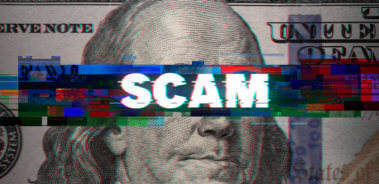Student Loan Forgiveness Scams

While there are some legitimate student loan forgiveness programs out there, it’s important to be able to spot the ones that could cost you more than they help. Most legitimate programs that assist student loan borrowers are offered via Non-Profit organizations or advocacy groups. If it’s a private company, you may want to turn on your safety radar, because some of these companies are only interested in your money. Today, we’ll share with you several different layers of student loan forgiveness (and other related) scams.

What is student loan forgiveness?
Student Loan Forgiveness opportunities are generally offered by the US Federal Government. There are also various State programs that offer either full or partial Student Loan Forgiveness for borrowers in specific career segments (ie, healthcare, teachers, public service workers). If a borrower meets all requirements of the State or Federal program, they would be eligible for loan discharge.
Could I be scammed? Find Out
Shorter Answer: Yes. Anyone can be a victim.
There’s a difference between a company running a con, and something illegal. Some of these companies are technically legally offering services for a fee. Student Loan borrowers agree to that fee under a false pretense. Often this entails signing a service agreement with the predatory company. The bottom line is: Are they directly improving your student loan situation? Or following through on promises made? Learn more about how to find out if you’ve been scammed
What are some common student loan forgiveness scams?
There are a few different types of student loan forgiveness scams. The overall theme is false promises. Some will say they can lower your payments at no cost to you. While others might say they can enroll your loans into a total forgiveness program, or even forgive your loans on the spot. They usually charge an exorbitant fee. Check out the full list of student loan scams and red flags
Preventative measures
The best way to avoid student loan forgiveness scams is to be proactive. Before you sign up for any program, do your research. Read reviews and look for red flags. The saying is true. “If something sounds too good to be true, it probably is.” Once you’ve found a reputable program, make sure you understand the terms and conditions. If you think a program might be legit, but you’re still skeptical, ask our team of Experts. Learn more about how to protect yourself
After being scammed what should I do?
If you have confirmed you were scammed, it’s important to take action as quickly as possible. Part of this process entails getting out of any agreements or Power of Attorney that you may have signed. There are also many government and advocacy agencies you can report scams to, which could limit the damage already done. Worst case, you could be preventing others from falling for the same deception. Understand your options
Cyrus Protection
When you need someone in your corner during a stressful time, don’t hesitate to contact Cyrus. Download our iOS app to chat with our experts ASAP.
Learn more about Cyrus Security



